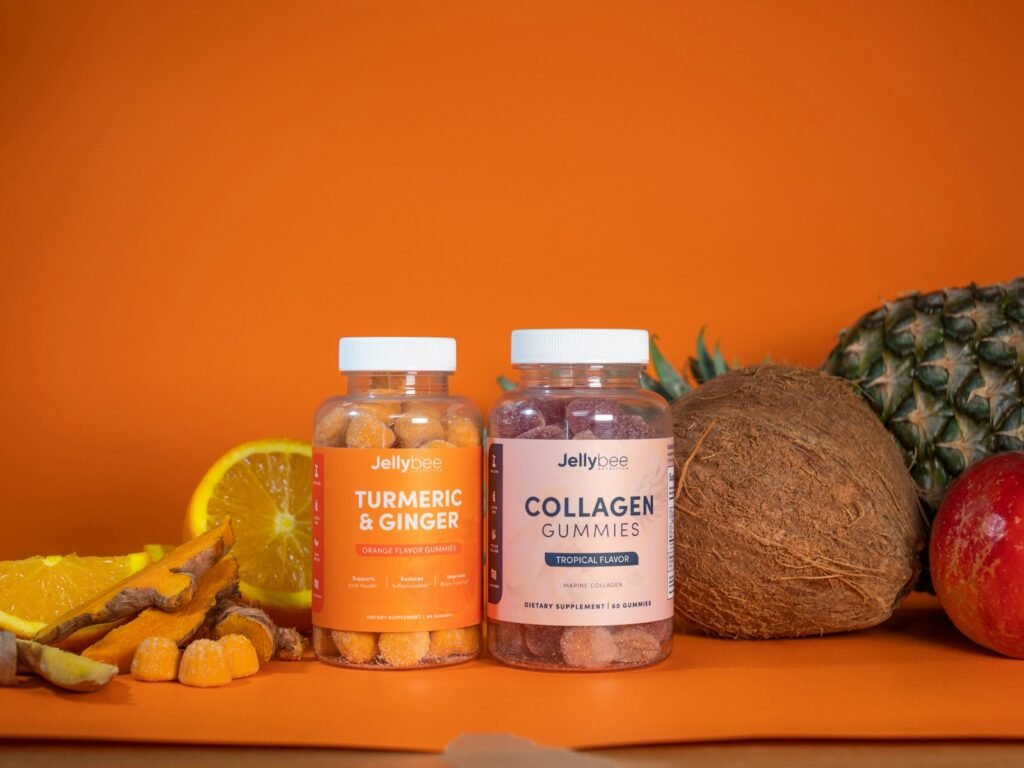Why Vitamins Matter More Than You Think
Let’s face it—between rushing to work, juggling everyday stress, and trying to eat “healthy,” it’s easy to fall short on essential nutrients. That’s where daily vitamins come into play. In today’s fast-paced world, supplements can help fill nutritional gaps and support your overall health. But with so many options out there, it can feel overwhelming to figure out what vitamins you really need.
Think about it this way: your body is like a car. To run smoothly, it needs the right kind of fuel. While food should be your main source of nutrition, your body might still be missing critical nutrients. This can affect everything from your energy levels to your immune system, skin appearance, and even your mood.
This article breaks down top vitamins to take daily, based on expert recommendations and scientific research, to help you stay strong, healthy, and feeling your best—every single day.
How To Know If You’re Vitamin Deficient
Before we dive into the best daily vitamins, it’s helpful to know the signs of vitamin deficiencies. Do you get sick often? Feel tired even after resting? Does your skin look dull or dry? These could be signs your body is missing something important.
That said, always check with a medical professional before starting any new supplement. Blood tests and consultations can help pinpoint specific deficiencies.
The Golden Rule: Food First, Supplements Second
Doctors and dietitians across the board agree: Food is your best source of vitamins. However, not everyone has the time or resources to eat a perfectly balanced diet every single day, and that’s okay. Supplements can be a smart and helpful backup plan.

Top Vitamins You Should Consider Taking Daily
1. Vitamin D
This sunshine vitamin is essential for strong bones and a healthy immune system. However, most people don’t get enough, especially during the fall and winter months when sunlight is limited.
- Main benefits: Supports bone health and immune function
- Recommended dose: 600–800 IU per day (more if you’re deficient)
Living in areas with limited sun or spending most of your day indoors? A Vitamin D supplement could be a game-changer.
2. Magnesium
While it isn’t commonly talked about, magnesium plays a huge role in over 300 bodily functions—including nerve transmission, energy production, and muscle relaxation.
- Main benefits: Reduces muscle cramps, relieves stress, supports heart health
- Food sources: Spinach, nuts, whole grains
If you experience frequent headaches, sleep troubles, or muscle spasms, magnesium might help.
3. Vitamin B12
This powerhouse vitamin is crucial for brain health and energy production. Vegans and vegetarians are especially at risk of deficiency since it’s mostly found in animal products.
- Main benefits: Boosts energy, supports nerve function, aids mental clarity
- Recommended dose: 2.4 mcg per day
Feeling sluggish and foggy? B12 could be the key to regaining your spark.
4. Vitamin C
Known for preventing the common cold, Vitamin C does a whole lot more. It’s an antioxidant that helps protect your cells from damage and supports skin health.
- Main benefits: Strengthens immune system, aids in collagen production
- Food sources: Citrus fruits, strawberries, bell peppers
Although it’s found in many foods, a supplement might still be helpful—especially during flu season.
5. Iron
Iron is vital for carrying oxygen through the blood. Low iron levels can cause fatigue, shortness of breath, and even hair loss.
- People at risk: Menstruating women, pregnant individuals, and vegetarians
- Tip: Take it with Vitamin C to improve absorption
Before supplementing with iron, get your levels checked. Too much iron can be harmful.

Who Might Benefit Most From Daily Vitamins?
While daily vitamins can be helpful for most people, some groups may need them more than others:
- Older adults: Absorption of certain vitamins (like B12 and Vitamin D) decreases with age.
- Pregnant women: Need extra folic acid, iron, and calcium for baby’s development.
- People with restricted diets: Vegans, vegetarians, or those with food allergies may lack specific nutrients.
- Busy professionals: If you’re always on the go and your diet varies, supplements can help you stay consistent.
Think of a multivitamin like a safety net—it won’t replace healthy eating, but it can help catch the nutrients you might otherwise miss.
Common Myths About Vitamins
Let’s bust a few myths that tend to make the rounds:
- “Vitamins can do it all.” – False! They work best when used with a healthy lifestyle.
- “You can’t have too much.” – Also false. Some vitamins, like A and D, can build up and become toxic in high doses.
- “Natural is always better.” – Not necessarily. Synthetic vitamins can be just as effective and are often more precisely dosed.
The key takeaway? More isn’t always better. The goal is balance.
Should You Take a Multivitamin?
Multivitamins are convenient and generally safe. They can be particularly useful for people who don’t eat a wide variety of foods. However, it’s still best to target individual needs. For example, if you’re mostly lacking in Vitamin D and B12, it might be more efficient to focus on those instead of taking a “catch-all” pill.
Your doctor or a registered dietitian can help you customize a plan based on your health goals and lifestyle.

How to Choose the Right Supplement for You
Walk into any pharmacy and you’ll see shelves filled with vitamins. So how do you choose one that’s right for you?
Here are some tips:
- Check for third-party certification, such as USP or NSF. These ensure quality and accuracy in labeling.
- Read the label to know what’s actually inside—and what isn’t. Avoid supplements with unnecessary fillers or dyes.
- Match your needs. Choose supplements tuned to your age, gender, and dietary habits.
- Ask questions. Don’t be afraid to talk to your health provider for guidance.
Final Thoughts
The world of vitamins can feel complex, but it doesn’t have to be. By understanding the basics, looking at your own lifestyle, and choosing quality products, supplements can become a simple yet powerful way to boost your well-being.
While no pill can replace a healthy diet, daily vitamins can act like a health insurance policy—giving you a bit of extra support where you need it most. Whether you’re dealing with energy slumps, frequent colds, or just want to feel your best, starting a smart supplement routine could be the small change that leads to big results.
Quick Recap: Key Vitamins to Consider Daily
- Vitamin D – For immunity and bone health
- Magnesium – For muscle, stress, and sleep support
- Vitamin B12 – For energy and brain function
- Vitamin C – For immune and skin health
- Iron – For oxygen circulation and energy
Start small, stay consistent, and always prioritize food first. Supplements are there to support your journey toward better health—not replace good habits.
Disclaimer: This blog is for informational purposes only and is not a substitute for professional medical advice. Always consult your doctor or a qualified health provider before starting any new supplement.













